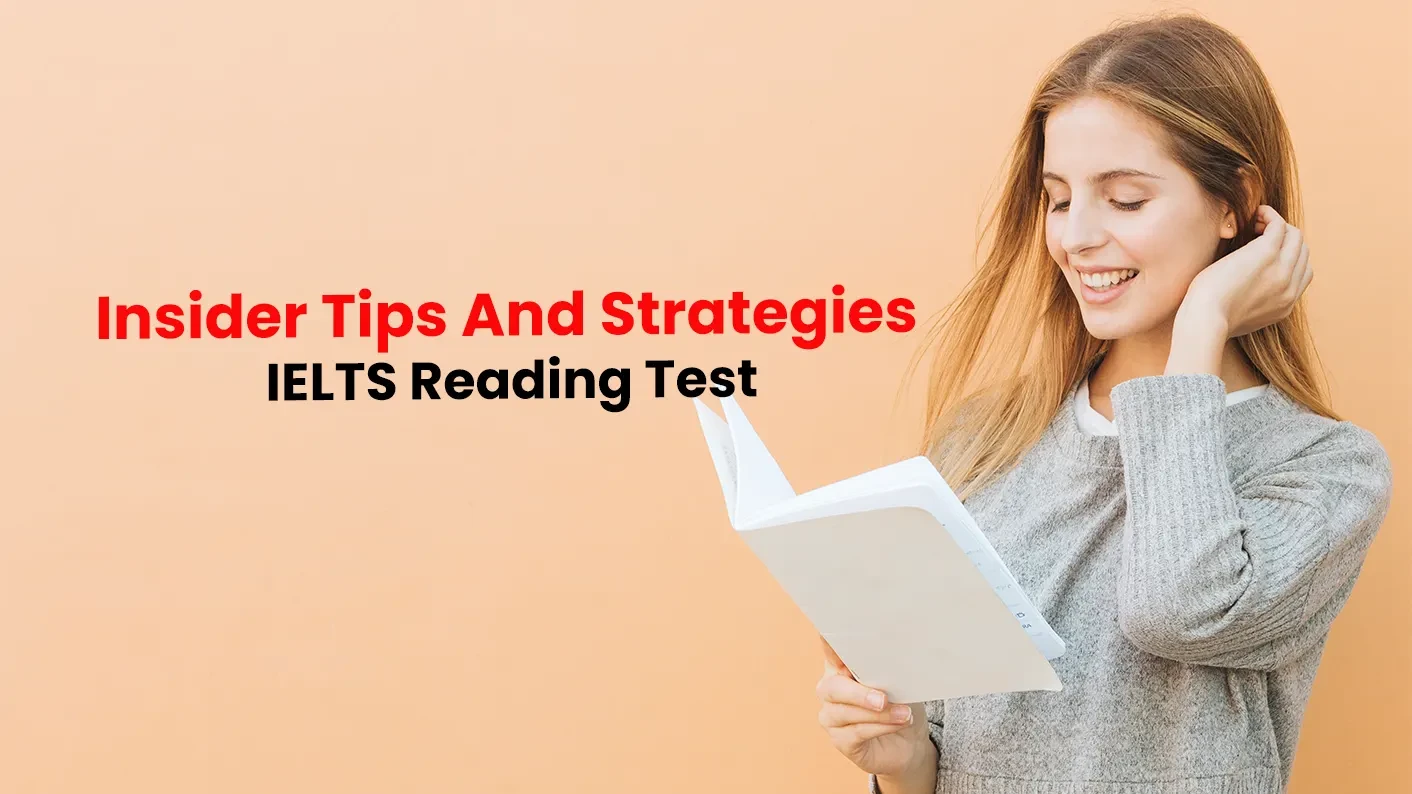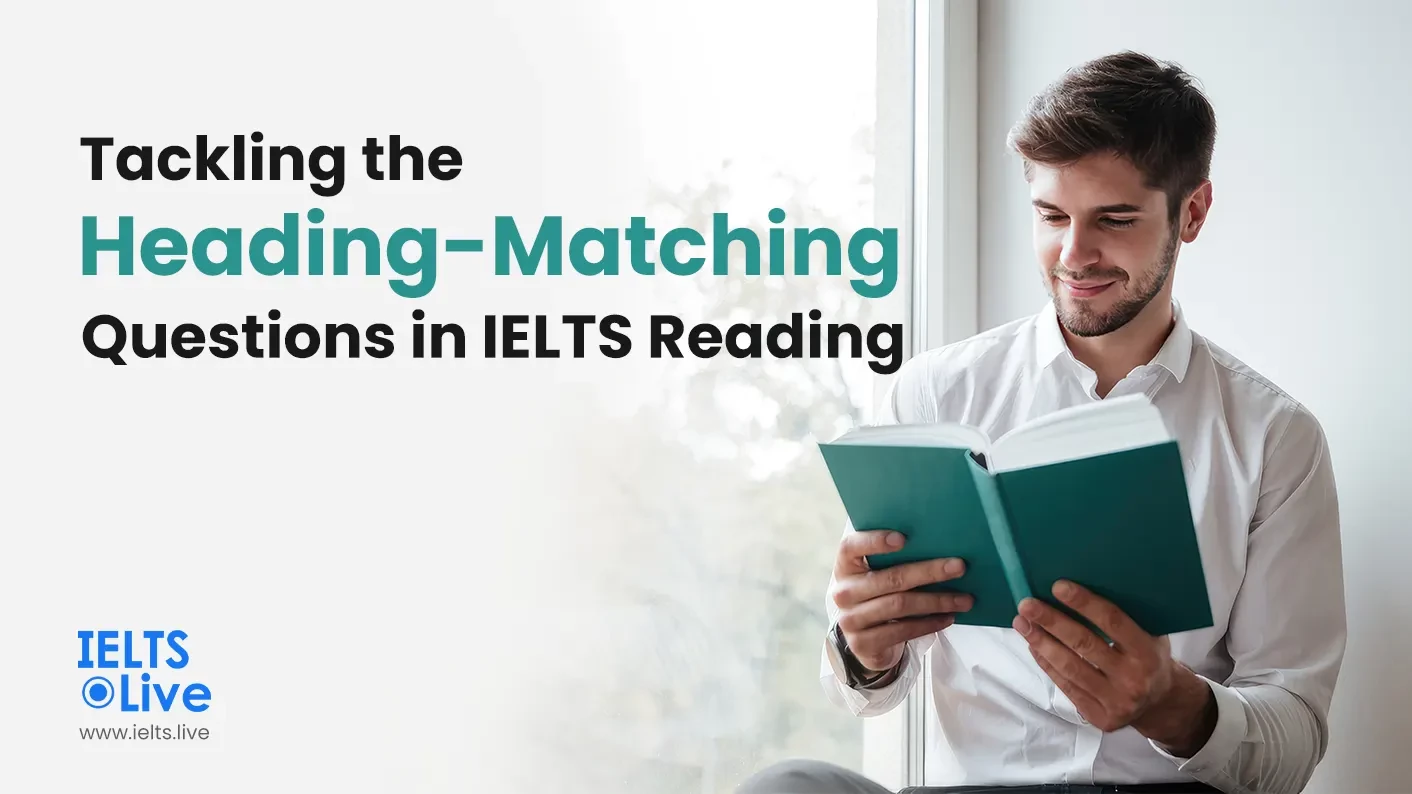
Ready to conquer the IELTS reading test and show off your English proficiency? Look no further! This blog post is your ultimate guide to acing the test and achieving your dream scores. Whether you're a non-native speaker or simply looking to improve your reading skills, these valuable tips and strategies will help you succeed. So let's dive in and get you one step closer to your goals!
The IELTS reading test is divided into three sections, each of which becomes increasingly challenging as the test progresses. Candidates must answer 40 questions in total within these parts, with each question testing distinct reading skills. The purpose of the reading test is to assess a candidate's ability to:
- Grasp the key concepts and details of a text
- Analyze and interpret information in the text
- Find specific information within the text
- Understand the structure and organization of the text
- Deduce meaning from context
- Identify the author's purpose, opinions, and attitudes
- Understand academic vocabulary and language structures
To assess these various skills, the IELTS reading test employs several types of questions. These include multiple-choice questions, true/false/not given questions, matching headings questions, sentence completion questions, matching information questions, short answer questions, and diagram labeling questions. Each of these question types requires the candidate to approach the text in a unique way and apply different reading strategies. In this blog post, I will share some tips on how to ace the IELTS reading test.


Understand the Test Format
Before you start preparing for the IELTS reading test, it is essential to understand the test format. Familiarize yourself with the types of questions that are asked in the test and the time limit for each section. You can find this information on the official IELTS website or through practice tests available online. You can also visit ielts.live to practice some tests online.
Develop Your Reading Skills
The IELTS reading test is designed to evaluate your reading skills, so it is essential to work on improving them. Building a reading habit helps greatly to develop your reading skills. You can do this by reading a variety of texts, such as newspapers, magazines, academic journals, and online articles. Focus on improving your reading speed, comprehension, and vocabulary.
Skimming and Scanning
Skimming and scanning are essential reading techniques that can help you save time during the test. Skimming involves reading through the text quickly to get a general understanding of the main ideas and the overall structure of the text. This technique is useful for quickly familiarizing yourself with the content and getting a sense of what the text is about.
Scanning, on the other hand, involves searching the text for specific information such as names, dates, or numbers. This technique is useful for quickly locating the answer to a specific question without having to read the entire text in detail.
Both skimming and scanning require practice and can be improved with time. By using these techniques, you can quickly identify important information, save time, and improve your chances of getting a high score on the IELTS reading test.
Time Management
The IELTS reading test is timed, and you need to manage your time effectively to complete all the questions in the given time. Allocate a specific amount of time for each section and try to stick to it. If you are struggling with a particular question, move on to the next one and come back to it later. Generally, you will need more time as you move forward from article one to article three. What most candidates do is keep 15 minutes for section 1, 20 for section 2, and lastly, 25 for section 3. This may vary according to the scenario you’re in.
Understand the Questions
Before answering the questions, make sure you understand them correctly. Many candidates give the wrong answer due to hurrying and not understating the question properly. Read the instructions carefully and underline any keywords or phrases that can help you identify the relevant information in the text.
Predict the Answers
While reading the text, try to predict the answers to the questions. This can help you focus on the relevant information and save time during the test. Use your skimming and scanning techniques to find the specific information that supports your predictions.
Use Context Clues
When you're doing a reading test and you come across a word you don't know, you can use context clues to figure out what it means. Context clues are like little hints that the text gives you to help you understand what a word means. To use context clues in a reading test, start by reading the sentence or passage around the unfamiliar word. Look for clues such as synonyms, antonyms, or descriptive language that can provide insight into the meaning of the word. It's a pretty handy trick to have up your sleeve!
Practice with Sample Tests
Practice is the key to success in the IELTS reading test. Use sample tests to practice your skills and develop strategies that work for you. Analyze your mistakes and learn from them to improve your performance.
Stay Focused
During the test, try to stay focused and avoid distractions. Because in the IELTS exam, every second counts. Focus on the text and the questions and try not to let your mind wander. If you feel tired or distracted, take a short break of one second to refresh your mind.
Manage Your Stress
The IELTS reading test can be stressful, but it is essential to manage your stress effectively. Practice relaxation techniques, such as deep breathing or visualization, to calm your mind and body. Remind yourself that you have prepared for the test and that you are capable of performing well. You must remain confident throughout the test.
In conclusion, the IELTS reading test is a challenging but essential component of the IELTS exam. When it comes to acing the IELTS reading test, there is no one-size-fits-all approach. Every candidate has their strengths and weaknesses, and it's up to them to determine the best way to prepare for the test. However, there are some tried-and-true methods that can help non-native speakers improve their reading skills and increase their chances of success.
One approach is to focus on building vocabulary and enhancing comprehension skills. By reading a variety of materials, such as books, newspapers, and academic journals, candidates can expose themselves to new words and concepts, helping them to better understand the texts they'll encounter on the IELTS reading test.
Another strategy is to practice time management skills, as candidates have a limited amount of time to complete the test. This involves learning to quickly scan texts for important information, avoiding getting bogged down by difficult passages, and pacing oneself to ensure that all questions are answered before time runs out.
Ultimately, success on the IELTS reading test requires dedication, effort, and a willingness to learn and improve. By using a combination of strategies and taking advantage of available resources, such as practice tests and study materials, non-native speakers can confidently approach the test and achieve their desired scores








0 COMMENTS